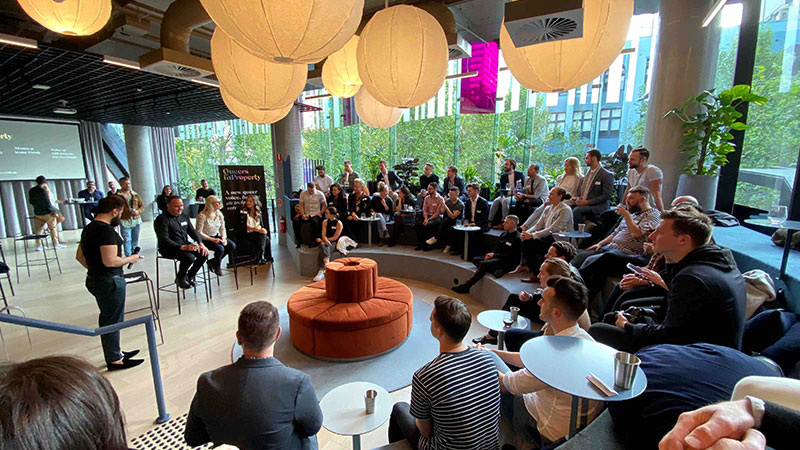Out at Work? Queerleaders in Property
The property industry can feel intimidating and even unsafe to someone who is not a straight-identifying male or female, reveals a new Melbourne-based property group.
To counter this, Queers in Property has been created with the aim to build a safe and inclusive community for LGBTIQ+ people working in the property and construction sectors, what it describes as typically a heteronormative environment.
A recent study by Diversity Council of Australia and RMIT University, which involved conversations with more than 1600 members of the LGBTIQ+ community, shows the significance for organisations to build on diversity and inclusion in the workplace.
“Being a queer woman in property isn’t easy,” Riverlee marketing manager and Queers in Property founder Meg Patten said.
“Simply because we are a double minority and there isn’t many.
“By growing a member-focused network and being visible, we hope to empower our LGBTIQ+ community to be their most authentic self in an industry that is not always inclusive.”
Related: Indigenous Urban Design

Why does being out at work matter?
Concealing compromises wellbeing.
The DCA study, undertaken by RMIT University found that LGBTIQ+ employees who are not out to everyone at work are:
Twice as likely to feel down as employees who are out to everyone at work.
45 per cent less likely to be satisfied with their job.
Being out at work drives performance
LGBTIQ+ employees who are out to everyone at work are:
50 per cent more likely to innovate than workers who are not out to everyone.
35 per cent more likely to work highly effectively in their team.
28 per cent more likely to provide excellent customer/client service.
It’s more than just policies: Culture is what counts
More than anything else – it was having an LGBTIQ+ inclusive culture that made LGBTIQ+ people feel safe to be themselves at work.
Queers In Property was also formed by Riverlee’s development manager Ben Rowe, and The Property Agency’s national director Rossco Karabeles.
The group says its focus is also to “change heteronormative attitudes and constructs in an industry shaped by privilege”.
“We aim to build a diverse queer movement representing all identities and abilities through the power of visibility,” Patten said.
“Through seeing each other and being seen, we challenge discriminatory attitudes, increase self-worth and champion acceptance.”
The group plans to build inclusivity and representation through supporting a community of "queerleaders", which the team describe as a queer person bringing change within the property industry.















